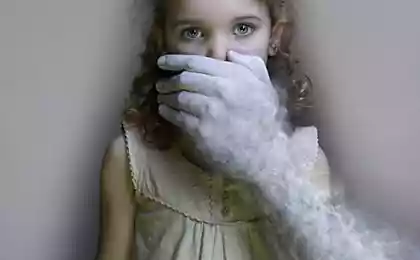573
13 facts about sneezing

Despite the fact that the response to sneezing is different in different cultures, most of the issues relating to universal sneezing.
It seems that the sneezing becomes almost universal, as a cold snap that is often associated with the presence of mold and ragweed pollen in the fall, which many people are allergic. As winter approaches, people begin to spend more time indoors, where they are often affected by airborne irritants. In addition, when a person is in the room, it's hard to avoid the potentially harmful impact on another person's sneeze.
1. Sneezing sounds almost the same in many languages. Thus, in the Russian language "Sneezy" is sneezing. In English it sounds «achoo», the French «atchoum», the German «hatschie», the Spanish «achu», the Italian «etchiu», the Polish «Apsik», the Japanese «hakushon», Finnish «atsiuh».
2. in different countries also agreed on ways to respond to sneezing. In Russian we say "Cheers!" In English «Bless You» (literally "bless you"). The Greeks and Romans believed sneezing favorable omen. In India, sneezing is a sign of health.
3. Nose person produces about one to two glasses of mucus a day.
4. Most pet sneeze - this iguana. Iguana sneeze more often than any other animal. With sneeze they relieve your body of certain salts, which are by-products of the digestive process.
5. Sneezing - is an automatic reflex that can not be stopped, if it has already begun.
6. If you try to keep sneezing, pinching the nose, it can rupture the eardrum due to the fact that sneezing is sent to the eustachian tube. People who held off sneezing, met effects such as bleeding from the nose, tears of blood vessels and even blindness.
7. Center sneeze at the bottom of the brainstem. Damage to this part of the brain can lead to an inability to sneeze.
8. Sneezing protects our body. This is an important part of the immune process, which contributes to the preservation of health.
9. When you sneeze produces about 40,000 droplets at a speed of 44.7m / s.
10. While everyone can sneeze from time to time, those who do not cover their mouth and nose area in close public places, can transmit germs of about 150 other people.
11. People do not sneeze in his sleep, as the nerves involved in this reflex, also resting.
12. From 18 to 35 percent of people sneeze when exposed to sudden bright light.
13. Sneezing may have a psychological cause. Such emotions as fear, sadness, excitement can trigger sneezing. Responding to the psychological stimulus arises from the attempt to restore the balance in the nose. Strong emotions can lead to narrowing and widening of the nasal membranes, sneezing, and returns them to the normal state.
Source: www.infoniac.ru
via factroom.ru
The new laser for eye microsurgery does not burn, and vaporizes the damaged tissue
American Babylon Alvaz is married with a warehouse























